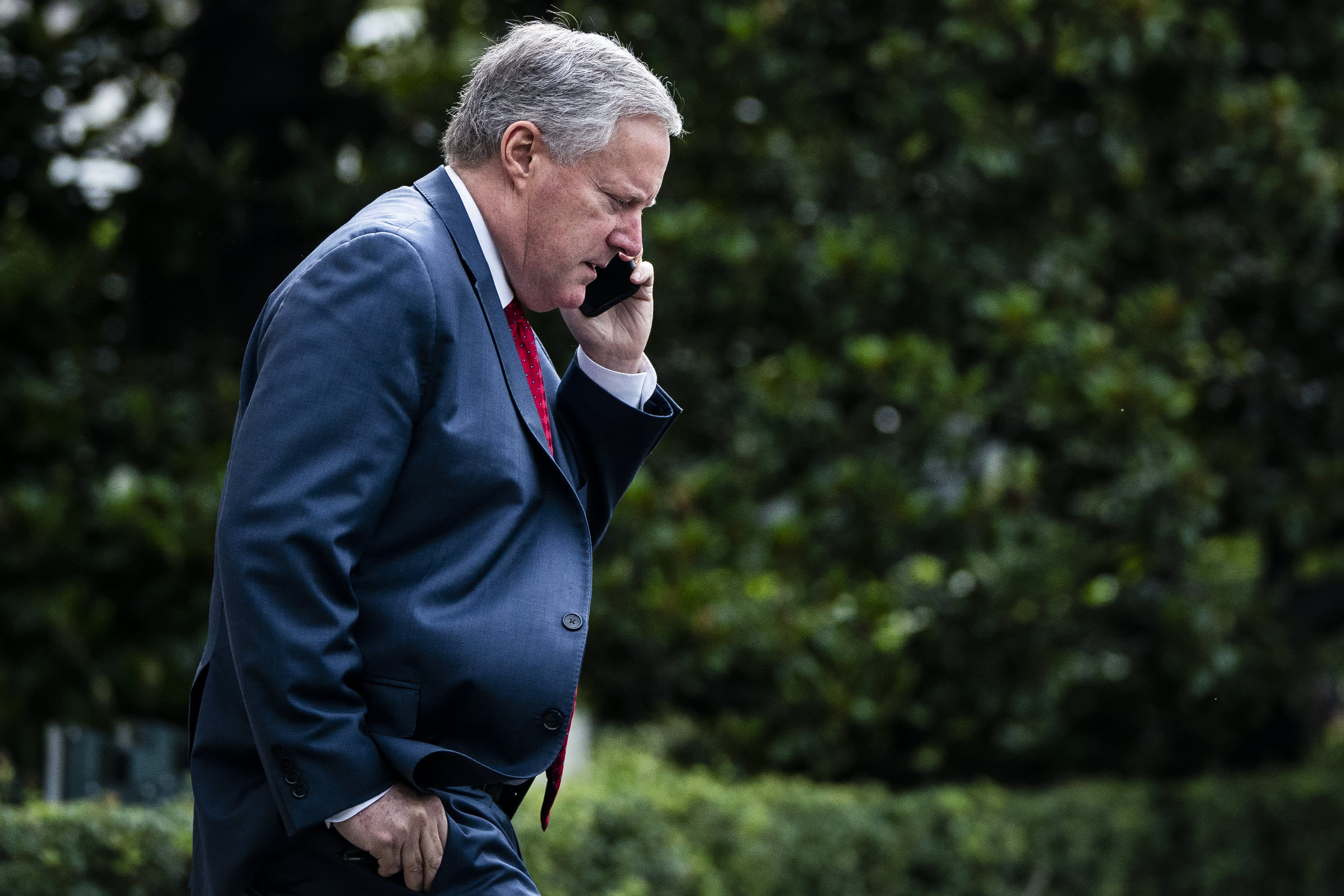A bipartisan group of House lawmakers spoke with White House Chief of Staff Mark Meadows in an effort to advance stalled discussions on the coronavirus economic stimulus package, a person at the meeting told NBC News Saturday.
Seven members of the bipartisan “Problem Solvers Caucus,” who have previously met twice to try to advance negotiations, were present at the discussion which took place Friday morning. The dialogue was “respectful and productive” and another meeting is possible, the person told NBC News.
The participants included Reps. Josh Gottheimer, D-N.J., Abigail Spanberger, D-Va., Dean Phillips, D-Minn., Jimmy Panetta, D-Calif., as well as Reps. Tom Reed, R-N.Y., Anthony Gonzalez, R-Ohio and Pete Stauber, R-Minn.
“Members of the Problem Solvers Caucus spoke with Chief of Staff Meadows [yesterday] morning to discuss ways to help break the logjam between parties, get negotiators back in the room and help America in our response to the Covid crisis,” a spokesperson for the Problem Solvers Crisis said.
Coronavirus aid talks between Democratic leaders and the Trump administration came to a halt on Aug. 7 and leaders have not made any progress since.
An agreement on legislation or even a passage of a bill appear to be weeks away. The Senate ended its final session on Thursday and will not return this month unless an agreement is reached, and the House had already left Washington for all of August.
House Speaker Nancy Pelosi has called for the GOP to increase its aid offer by $1 trillion and said she would then lower her offer by $1 trillion, bringing about a deal with a $2 trillion price tag. However, Treasury Secretary Steven Mnuchin and other Republicans have repeatedly said the White House will not double the GOP’s $1 trillion offer.
“Despite Congressional Democrats continued insistence on blocking coronavirus legislation in favor of their own political interests, the White House continues to evaluate all options on how we can deliver relief to the American worker, keep our schools safe and ignite our economy again,” a White House spokesperson said.
After the talks collapsed, President Trump signed a series of executive orders to extend some pandemic relief, a move that will quickly face legal challenges because Congress, not the president, controls federal funding.
The president’s actions included extending unemployment benefits to at least $300 a week, providing some eviction protections, extending existing student loan relief and implementing a payroll tax holiday.
Correction: A bipartisan group of House lawmakers met with the White House chief of staff Friday morning. Rep. Abigail Spanberger is a Democrat from Virginia. A previous version of this story misstated the date of the meeting and Spanberger’s state.
